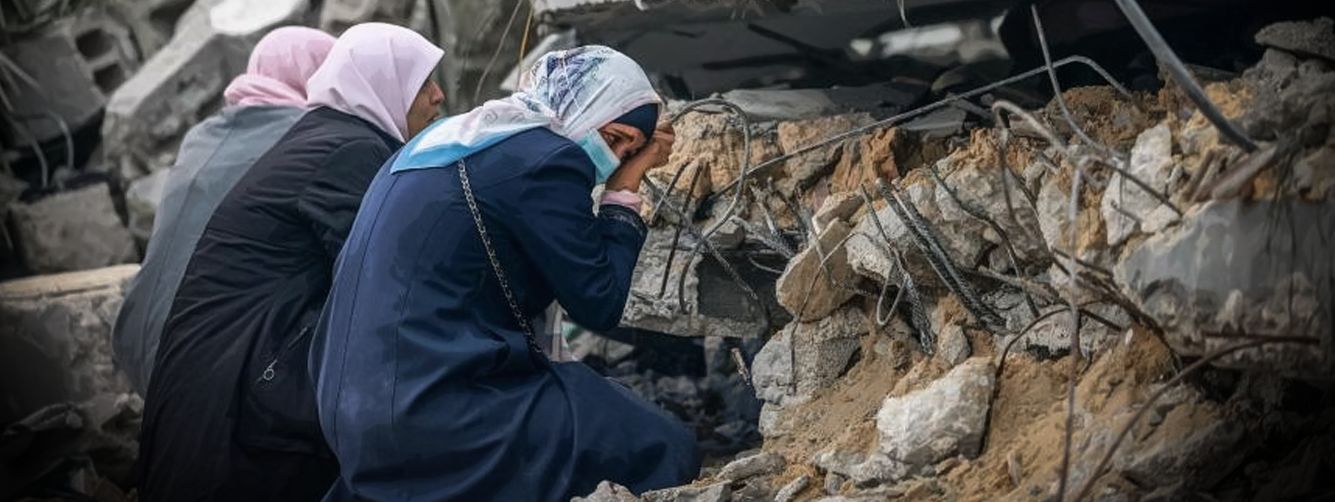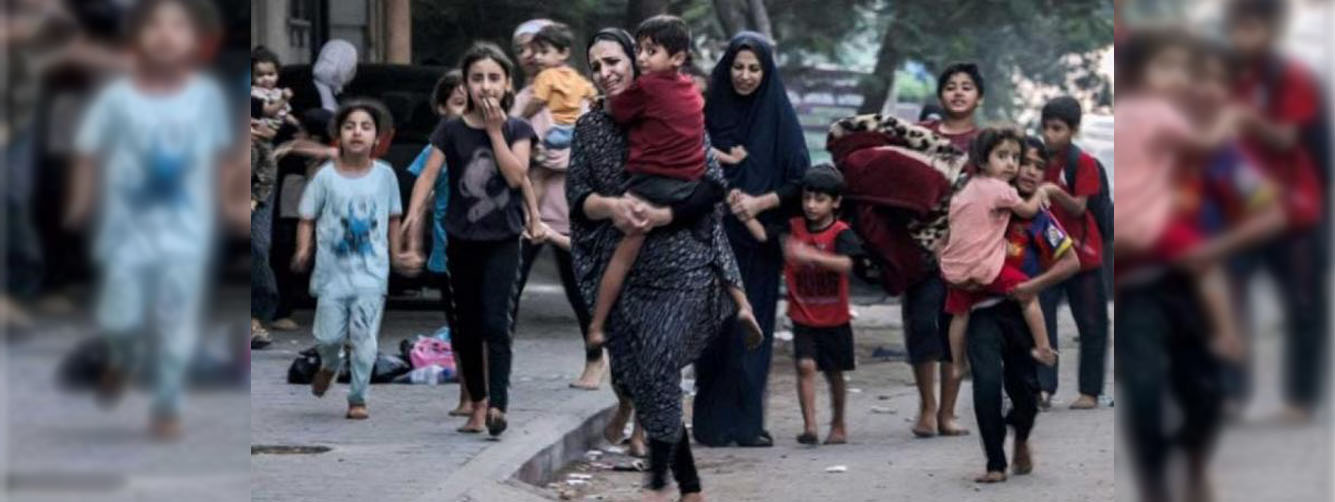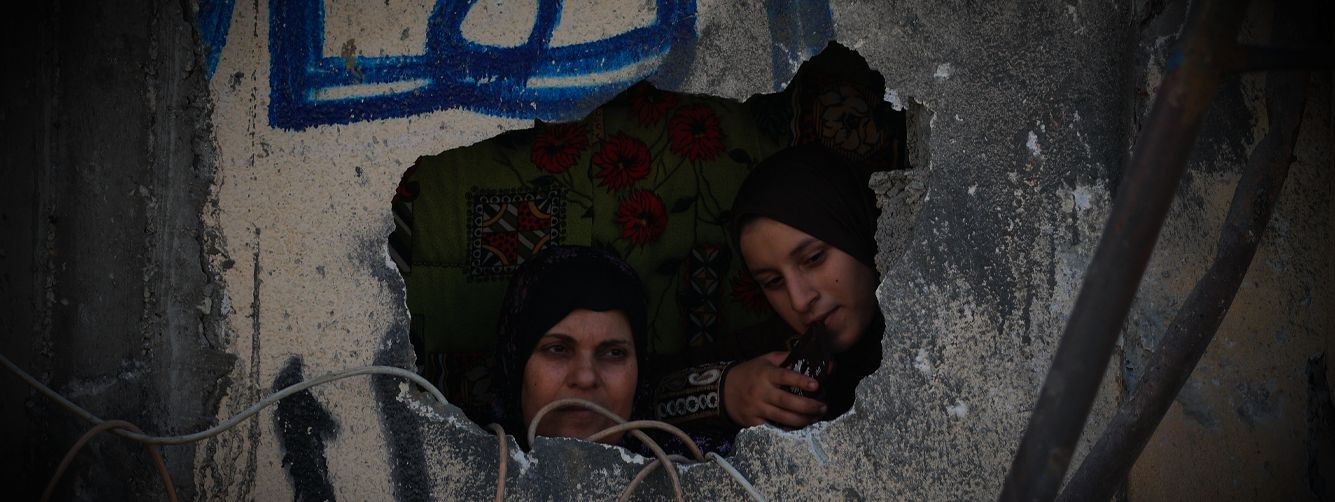Amnesty International is concerned at the continued closure of the Rafah crossing between the Gaza Strip and Egypt, as a result of which some one and a half million Palestinians who live in the Gaza Strip are denied the possibility to travel.
The closure restricts the access to health and education of Palestinians in the Gaza Strip and constitutes an arbitrary restriction of the right to freedom of movement and of the right to leave and return to one's own country.
Since the Israeli army redeployed its troops from inside the Gaza Strip on 12 September 2005, Israel has imposed a closure on the Rafah crossing. The only exceptions since then have been a one and a half day period on 23-24 September, when the border was opened to allow Palestinians both to leave and return to the Gaza Strip, and a period of a few hours on 3 October, when the border was partially opened to allow Palestinians stranded on the Egyptian side of the border to return to Gaza on the eve of the Muslim holy month of Ramadan. Some Palestinians in need of urgent medical care not available in the Gaza Strip may be granted permission by Israel to cross the border into Egypt, but such permits are difficult to obtain.
In the five days immediately following the redeployment of Israeli troops from the Gaza Strip many Palestinians defied the restrictions and crossed into Egypt through openings in the border fence, which were subsequently re-sealed by Palestinian and Egyptian security forces. On 12 September, the final day of its redeployment from the Gaza Strip, the Israeli army issued a military order announcing the end of Israeli military rule in the Gaza Strip (http://www1.idf.il/DOVER/site/mainpage.asp?sl=EN&id=7&clr=1&docid=45427.EN)
The Israeli authorities contend that the redeployment of their troops from the Gaza Strip constitutes the end of Israel's occupation of the Gaza Strip and that consequently Israel is no longer bound by its obligations as an occupying power under international law.
However, Israel continues to control all the entry/exits points into the Gaza Strip, including its border crossing with Egypt, its territorial waters and its airspace. The movement of every Palestinian, as well as the movement of any visitors, in and out of the Gaza Strip remains subject to permission being granted by the Israeli authorities.
At present, Israel refuses to allow the Rafah crossing to reopen and is seeking to impose a new arrangement whereby Palestinians leaving or returning to the Gaza Strip must pass through the Israeli Kerem Shalom Israeli army base inside Israel, near the south-eastern tip of the Gaza Strip. This would require Palestinians to go to the Gaza side of the Rafah crossing and then travel from there by special bus eastward along the Gaza-Egypt border into Israel to the Kerem Shalom Israeli army base. After being checked there by Israeli soldiers, they would be returned by special bus to the Rafah crossing, where those who had received Israeli permission could then cross through the border point from the Gaza Strip into Egypt. Both the Palestinian Authority (PA) and the Egyptian government are opposed to this Israeli requirement. While the deadlock continues Israel refuses to allow the Rafah crossing to reopen and the inhabitants of the Gaza Strip are thereby prevented from leaving and/or returning to the Gaza Strip. As a result many Palestinians are denied adequate medical care, education and employment opportunities, and contacts with their families.
Amnesty International is concerned that such an arrangement will effectively impose further arbitrary restrictions and delays on Palestinians seeking to leave or to return to the Gaza Strip. Prior to the redeployment of Israeli troops from the Gaza Strip, and especially in the past five years, most of the Palestinian inhabitants of the Gaza Strip were not able to leave the Gaza Strip, due to the frequent closures by the Israeli army of the Rafah crossing, or because Israel refused them permission to travel, or simply because they could not afford to spend days at the Rafah crossing waiting to pass.
Amnesty International calls on the Israeli authorities to ensure that whatever arrangement is made for the reopening of the Rafah crossing, it should be one that respects the human rights of Palestinians in the Gaza Strip.
The organization also calls on the Israeli authorities to allow freedom of movement for Palestinians between the Gaza Strip and the rest of the Occupied Territories in the West Bank. For the past decade Israel has continued to bar the movement of Palestinians between the Gaza Strip and the West Bank, except for very rare special cases; during the past five years, the restrictions imposed by Israel have been further tightened, even for such special cases.







